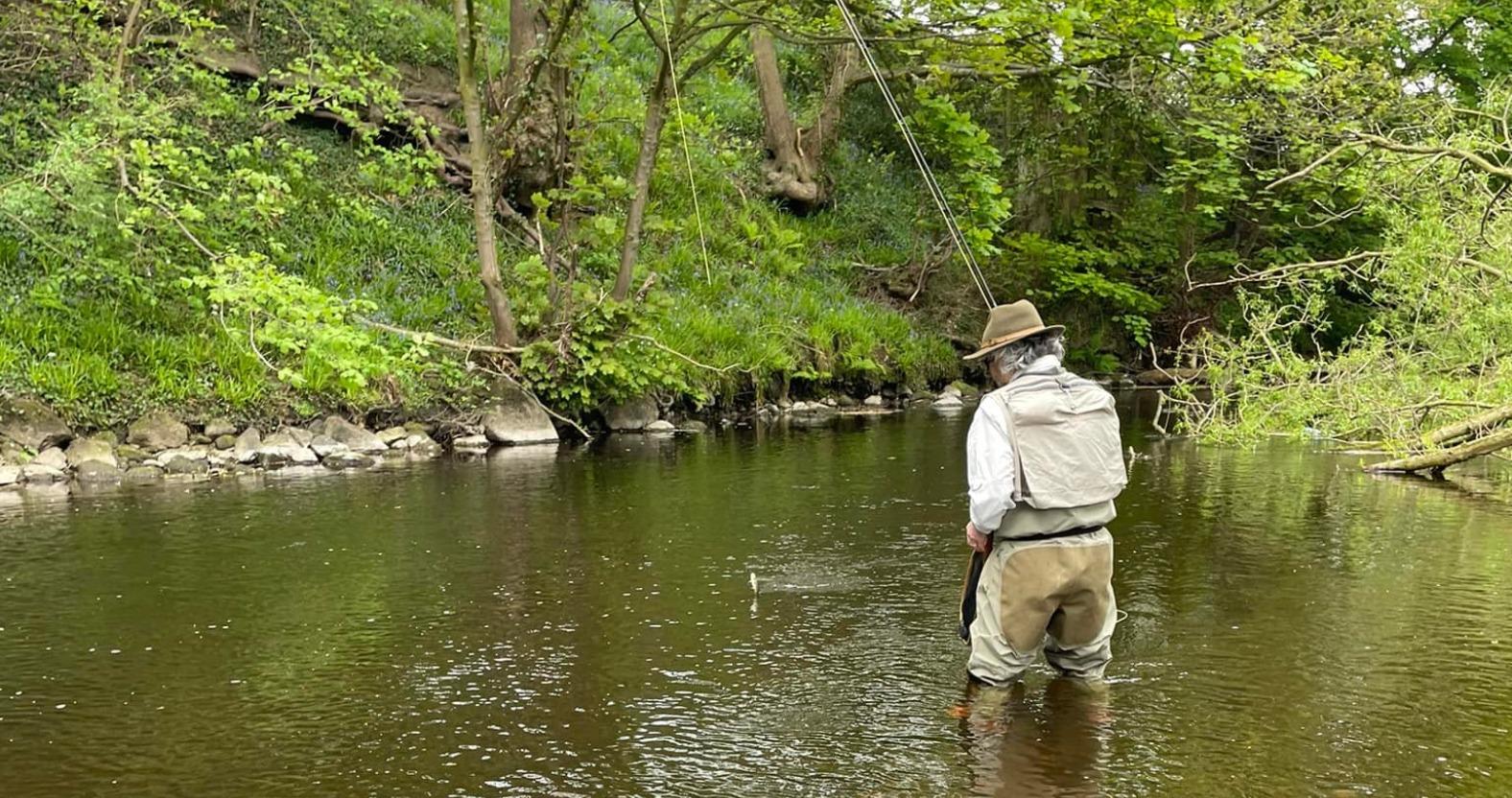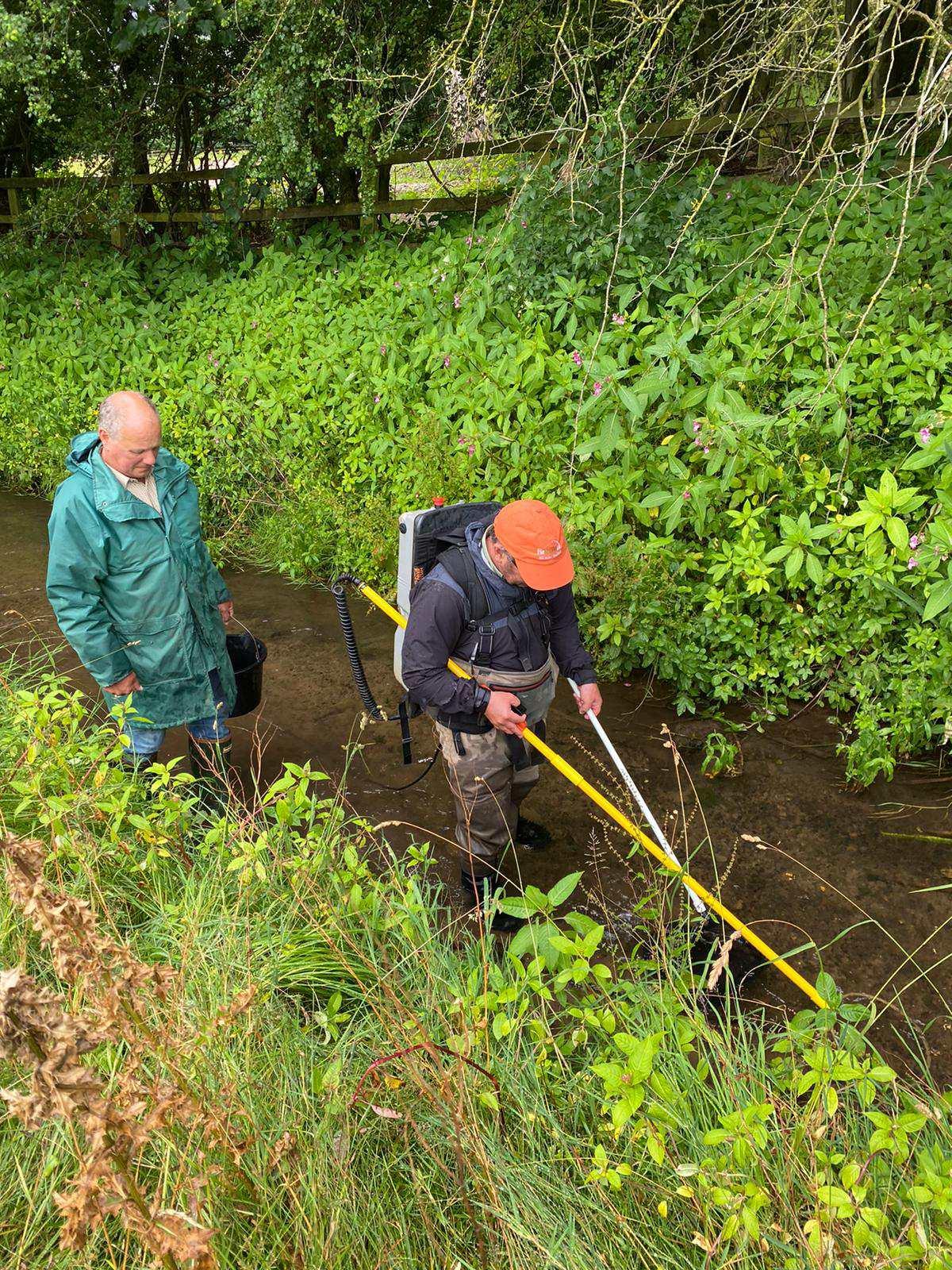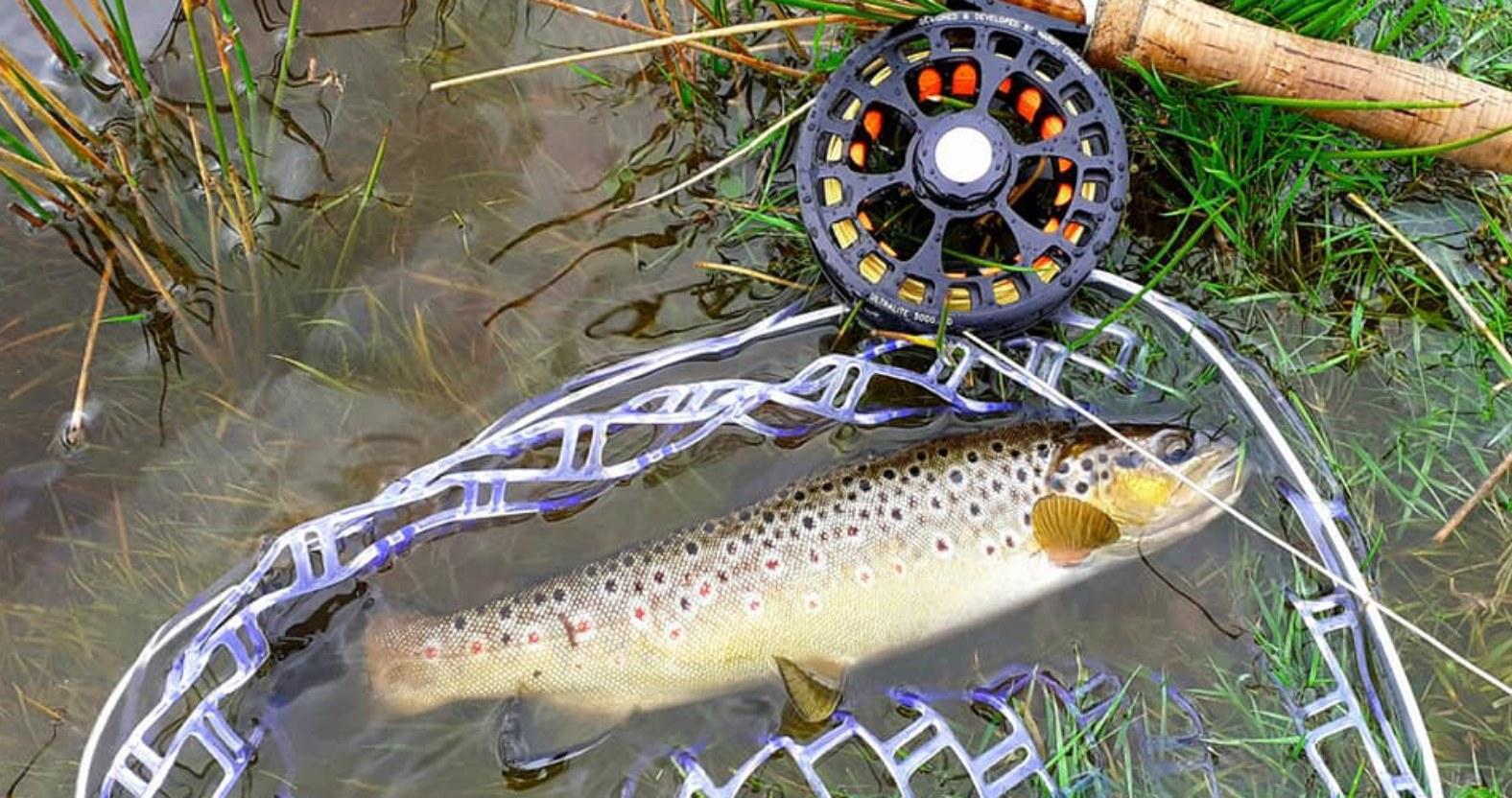Subscribe to trusted local news
In a time of both misinformation and too much information, quality journalism is more crucial than ever. By subscribing, you can help us get the story right.
- Subscription costs less than £1 a week with an annual plan.
Already a subscriber? Log in here.
28
Sept 2024
Habitat scheme boosts trout numbers in troubled River Nidd

Barely a week seems to pass these days without news of pollution in the River Nidd.
Whether it’s the bid to achieve bathing water status at Knaresborough Lido, or recent pollution incidents at Glasshouses Mill and Oak Beck, it’s easy to get the impression that the Nidd is a foaming mess of sewage.
While there are undoubtedly serious issues, the outlook isn’t entirely bleak.
Nidderdale Angling Club has introduced new methods in recent years to improve the river habitat and increase the number of fish. And the signs are it is working.
The club used to spend £6,000 a year stocking brown trout in the river to maintain fish supplies. But concerns about the impact of introducing farmed fish to the river, both on angling and the wider river ecology, prompted it to change.
The Stray Ferret met committee member and former president John Shillcock and current president David Tetley at Dauber Gill, which is a tributary of the Nidd at Wath, to learn more.
Nidderdale Angling Club controls seven miles of fishing on the Nidd around Pateley Bridge, as well as at Scar House reservoir. The £90 annual membership entitles fly-fishermen to enjoy some of the best wild brown trout and wild grayling sport in the country.

David Tetley (left) and John Shillcock at Dauber Beck

Dauber Beck at Wath
John and David explained that the new approach began in 2021, when the club agreed to collaborate with the Wild Trout Trust to improve the spawning habitats in two becks that flow into the Nidd — Dauber Gill and Rash Dyke, which is near Nidderdale Showground.
Artificial channels created years ago to straighten the becks had resulted in faster flowing water that had ripped out the gravel where fish like to spawn.
To combat this, 30 pairs of wooden deflectors were pinned to the riverbed to create obstacles that divert the flow and trap the gravel to improve the spawning habitats. Volunteers from Yorkshire Dales Rivers Trust, a Pateley Bridge-based river improvement charity, helped with the project.

Some of the wooden deflectors on Dauber Beck
Juvenile fish typically spend their first year in the becks before entering the main river so it was hoped improving their habitat would not only improve the chances of spawning but also of the young fish growing bigger before they moved on.
John, who has a background in ecology, says:
Instead of putting alien fish into a river it’s much better for the fish and river if the fish are born in the river and become adapted to the river and the food there. So we decided to reduce stocking and encourage spawning and breeding. We haven’t stocked for four or five years now.

Electro-fishing the beck. Pic: Nidderdale Angling Club
To complement the work, 100 tons of gravel have been added to the becks over the last four years. It costs about £1,000 a year for the gravel — a sixth of the cost of stocking fish — which has ceased altogether. The club has also been able to secure grants to pay for the gravel.
To monitor progress, the becks have been electro-fished annually by a team led by Dr Jonathan Grey, a conservation officer at the Wild Trout Trust.
David says:
Before the work we electro-fished 60 to 65 trout from Dauber Gill and last year there were 230 and this year about 210 so the numbers have increased three to four times and Rash Dyke was similar.
Numbers of stone loach, bullheads and minnows have also increased, indicating a healthier river environment. Sport has also improved.
John said:
The quality of fishing is so much better. People enjoy catching these wild fish and the fish they catch are actually bigger.
Anglers lead fight against pollution
This project isn't the only example of anglers being at the forefront of recent efforts to improve the Nidd.
IN 2021, the Environment Agency declared a major pollution incident when a 12-mile stretch of the river turned brown when silt escaped from Gouthwaite Reservoir during maintenance work.
The incident turned out to be less serious than feared but it prompted Nidderdale Angling Club and other clubs that fish the river to form the Nidd Catchment Group to work together on water quality issues.
The catchment group played a key role in setting up Nidd Action Group, which campaigns for a cleaner Nidd, and supported the successful campaign led by former Harrogate and Knaresborough Conservative MP Andrew Jones for bathing water status at Knaresborough Lido.
This means the Environment Agency has to test the lido weekly for faecal bacteria and, if the results are poor, implement plans to improve it.

A stunning brown trout. Pic: Nidderdale Angling Club
Nobody is under any illusion that cleaning the Nidd will be a long-term project but Nidderdale Angling Club is, to some extent, fortunate that many of the issues that blight the Nidd, are more severe in urban areas further downstream than in its waters.
Formed in 1897 by a group of anglers in the Old Oak Inn, in the village of Low Laithe, near Pateley Bridge, the club’s 300 members today continue to enjoy superb fishing in glorious Nidderdale.
Fly-fishing has changed considerably since then. It’s all barbless, catch and release sport these days on the Nidd. Fly and bait fishing for wild brown trout are permitted at Scar House Reservoir.
David hopes what is happening on the Nidd is replicated elsewhere to improve river quality nationally. He says:
Nationally, the numbers of fish are nothing like they used to be. I’m not a scientist but I can see it. We hope this will be part of a national initiative to clean up rivers. I’d like to think that if we keep this up for 10 years then the number of fish in the river will continue to go up and up.
0